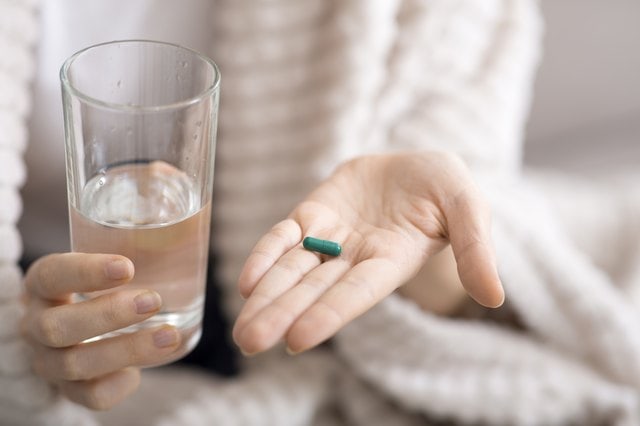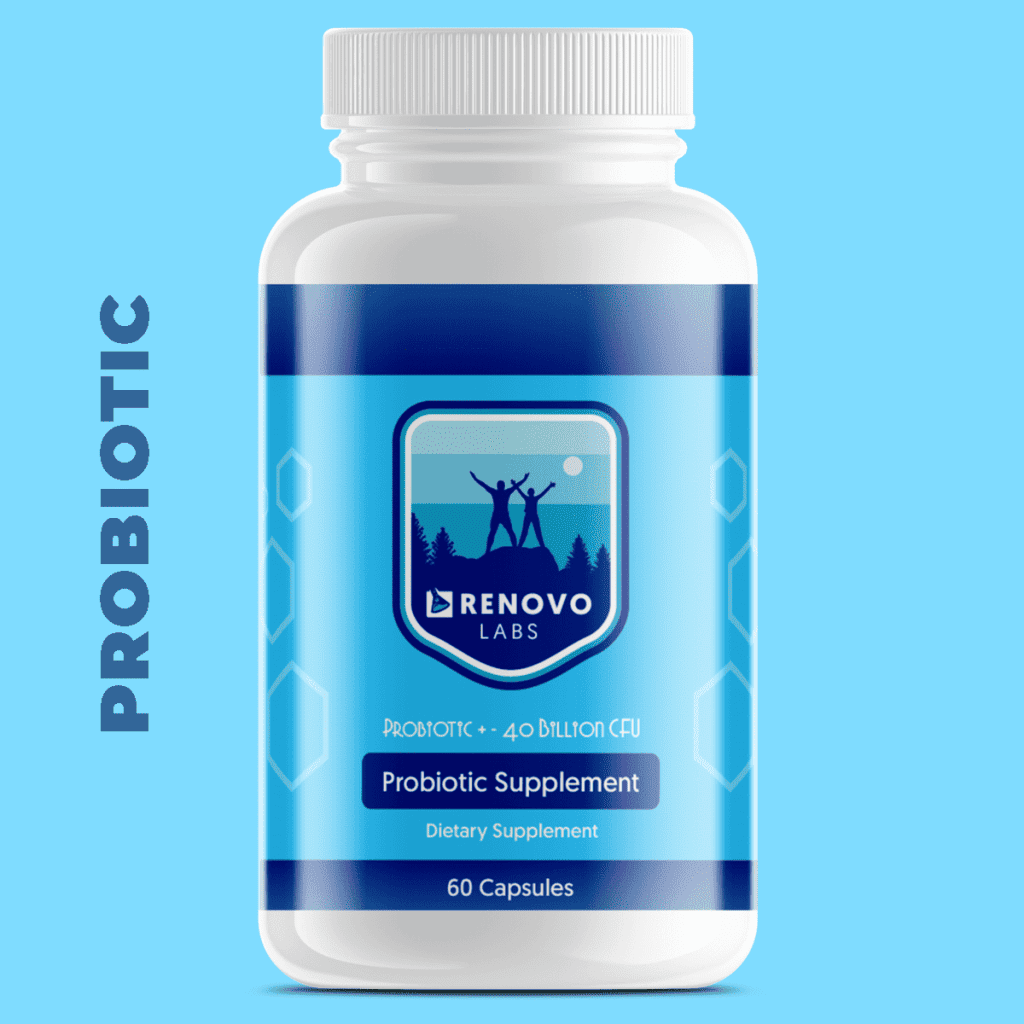Antibiotics are powerful medications that can help your body fight off bacterial infections. However, along with their healing properties, they can sometimes bring an unexpected and uncomfortable side effect – constipation. If you’ve ever wondered, “What helps constipation from antibiotics?” you’re not alone. In this blog post, we’ll explore the reasons behind antibiotic-induced constipation and share valuable tips to keep your digestive system on track.
Antibiotics and Your Digestive System
Antibiotics are like the tactical missiles of the medical world, targeting and destroying harmful bacteria that can make us sick. However, they don’t discriminate; they wipe out bacteria indiscriminately, which means they can also clear out beneficial bacteria in your gut. These friendly bacteria play a crucial role in digestion and maintaining regular bowel movements. When they’re disrupted, it can lead to constipation.
A 2023 study published in International Journal of Molecular Sciences discusses that
that the elimination of these crucial bacteria creates an opportunity for harmful, opportunistic bacteria to flourish. This imbalance can lead to various digestive issues beyond just constipation, affecting your overall gut health
Effective Strategies to Manage Antibiotic-Induced Constipation
Here are some strategies to manage and alleviate constipation caused by antibiotic use. Through diet, exercise, and proper hydration, you can support your digestive system and maintain comfort during antibiotic treatment.
Enhance Your Diet with Fiber
A diet rich in fiber can significantly help manage antibiotic-related constipation. Foods high in fiber, such as whole grains, fruits, and vegetables, add bulk to stool and accelerate its movement through the digestive system. Incorporating a variety of fiber sources can help keep bowel movements regular.
Regular Physical Activity
Exercise is another effective method for alleviating constipation. Even moderate activities like walking or yoga can stimulate your intestines and help the movement of stool through your digestive tract. Aim for at least 30 minutes of physical activity most days of the week.
Mind Your Fluid Intake
Hydration is key in preventing and treating constipation. Water helps to soften stool, making it easier to pass. Aim to drink at least eight glasses of water a day, and consider including beverages that contain electrolytes if dehydration is a concern, especially if diarrhea accompanies constipation.
Probiotic Supplements
While dietary adjustments are beneficial, sometimes they might not be enough. Probiotic supplements can directly replenish the beneficial bacteria in your gut that antibiotics might have depleted. Look for supplements that contain multiple strains of probiotics, and consider those that include prebiotics, which feed the healthy bacteria in your gut.
A 2022 study published in Medicine looked at the effects of probiotics on constipation. Two different probiotic formulas were developed and tested to see if they could help adults with constipation. Both formulas contained a mixture of beneficial bacteria, but one had 3 billion colony-forming units (CFU) while the other had 8 billion CFU. Participants took one sachet of the probiotics daily for 30 days. The study found that both formulas helped increase the frequency of bowel movements and improved stool quality without significant differences between the two. There was also a low occurrence of side effects, with only one reported case of abdominal pain. Overall, these probiotics were effective and safe for treating constipation.
Monitor Medication Effects
If you’re taking antibiotics and experiencing constipation, monitoring your symptoms closely is important. While mild constipation can be normal, severe cases can indicate a more serious issue. If you find your symptoms persist or worsen, it’s crucial to consult with a healthcare professional for personalized advice.
Implement a Routine
Creating and sticking to a daily routine can help manage constipation effectively. Set regular times for meals, bathroom breaks, and exercise. This can help train your digestive system to have regular bowel movements.
By following these strategies, you can help mitigate the uncomfortable side effects of antibiotics on your digestive system. If constipation becomes a significant issue, it is always best to consult a healthcare provider to ensure there isn’t a more serious underlying condition.
The Gut-Nourishing Power of Fermented Foods and A Convenient Alternative
One way to counteract the negative effects of antibiotics on your gut is by incorporating fermented foods into your diet. Fermented foods are rich in probiotics, which are live bacteria and yeasts that are good for your digestive system. Yogurt, kefir, sauerkraut, kimchi, and kombucha are all excellent options.

Fermented Foods Work Well – But They Might Not Be For You
However, it’s important to note that fermented foods are often an acquired taste, and not everyone enjoys them. If you’re looking for a more convenient and reliable source of probiotics, you can try Probiotic+ by Renovo Labs. Our specially formulated supplement is designed to replenish the beneficial bacteria in your gut, helping to alleviate constipation and support overall digestive health.
Our Probiotic+ product contains 4 strains of beneficial bacteria to supply your gut with the bacteria that was most likely wiped out during your course of antibiotics. Supplementing with Probiotic+ helps you become ‘regular’ again as it provides your gut with the bacteria needed for digestion and assimilation of nutrients. We’ve also added prebiotic fiber in there to help nourish the probiotic bacteria – which helps to provide more benefit to the user.
** These statements have not been evaluated by the Food and Drug Administration. This dietary supplement product is not intended to diagnose, treat, cure or prevent any disease **
Stay Hydrated and Replenish Electrolytes to Keep Your Bowels Moving
What helps constipation from antibiotics often comes down to hydrating and getting your electrolytes in as well. Dehydration can also contribute to constipation, and antibiotics may increase your risk of becoming dehydrated. Don’t feel bad about not minding hydration though; according to the National Institute of Health, up to 75% of Americans are chronically dehydrated!
Ensure you drink plenty of water throughout the day to keep your body hydrated. Additionally, consider adding electrolyte-rich drinks or foods to your diet, especially if you’re experiencing diarrhea and constipation. Electrolytes help maintain proper muscle function, including the muscles responsible for moving stool through your digestive tract.
In a Nutshell: Quick Tips to Combat Constipation from Antibiotics
1. Fiber-Rich Foods
Increase your intake of fiber-rich foods like whole grains, fruits, and vegetables to promote regular bowel movements.
2. Gentle Exercise
Engage in light physical activity like walking, as it can help stimulate bowel movements and relieve constipation.
3. Avoid Laxatives
While it might be tempting to reach for a laxative, it's best to avoid them unless advised by a healthcare professional, as they can worsen the situation in some cases.
4. Consult Your Doctor
If constipation persists or becomes severe, consult your healthcare provider for guidance on managing the issue.

Take Action and Try Probiotic+ from Renovo Labs
In conclusion, constipation from antibiotics can be uncomfortable, but it’s not something you have to endure. By nourishing your gut with probiotics, staying hydrated, and following these tips, you can maintain regular bowel movements even while taking antibiotics.
Don’t forget to take advantage of our special offer! Use coupon code ‘Renovo10’ to get 10% off your purchase of Probiotic+ by Renovo Labs. Give your gut the support it needs and stay on the move even during antibiotic treatment. Your digestive health matters, and Renovo Labs is here to help you maintain it.
*Disclaimer: This blog post is for informational purposes only and should not be considered medical advice. If you have concerns about constipation or any other health issues, please consult a healthcare professional.*





 Excludes DNA Testing
Excludes DNA Testing